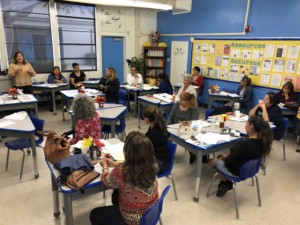(Finally) The Year of Mobile

With 2016 just around the corner we are looking back at trends with a #YearInReview series — check out the 1,500+ smart people doing innovative work we shared as part of the 3rd Annual Smart Lists.
In April, Google made mobile-friendliness a ranking signal, which is predicted to make a large impact on mobile search results. Facebook hit a billion daily logins in August–844 million were on mobile.
Most consumers now spend more time peering at mobile screens than laptops or desktops. New smartphones–like the iPhone 6 and the Samsung S5–make it easier to read content and watch videos. Mobile has become the prime screen for content consumption.
Mobile technology is both rewiring consumer behavior and enabling goods, services and processes in ways never before possible. Mobile has become a whole-body experience as wearable tech expanded to mass-market products.
Mobile apps are improving self-regulation. SAS Data Notebook provides integrated support for goal setting, progress monitoring, reflection, and communication. Happify is improving emotional wellbeing.
You can earn a college degree on your mobile device. DreamDegree is a cloud-based mobile platform that assesses student learning, and serves up only what the student doesn’t know. The platform prompts learners each step of the way with notifications. It get’s to know the learner and their preferred communication style. Students in India benefit from on-demand mobile tutoring.
Educause HigherEd surveys show that mobile device ownership is high and continues to increase among students, but instructors need technical, logistical, and pedagogical support for integrating mobile devices and apps in formal and informal learning environments.
The majority of school districts have dropped their ban on mobile phones. Most allow school staffs to decide when and how students can use mobile devices (bring your own device, or BYOD).
For five years, people have been saying “This is the year of mobile.” This time they’re right; with nearly ubiquitous US coverage and phone penetration, it changes our assumptions about how people communicate, learn, shop, and play.
Is your site mobile friendly? It may be time for a couple mobile focus groups.
- Pedagogy Should Always Precede Technology: SAS Curriculum Pathways Mobile Learning
- 6 Trends in Students’ Use of Mobile Devices In and Out of the Classroom
- In-Demand Job Skills and the (Mobile) Learning Process
Stay in-the-know with all things EdTech and innovations in learning by signing up to receive the weekly Smart Update. This post includes mentions of a Getting Smart partner. For a full list of partners, affiliate organizations and all other disclosures please see our Partner page.






0 Comments
Leave a Comment
Your email address will not be published. All fields are required.